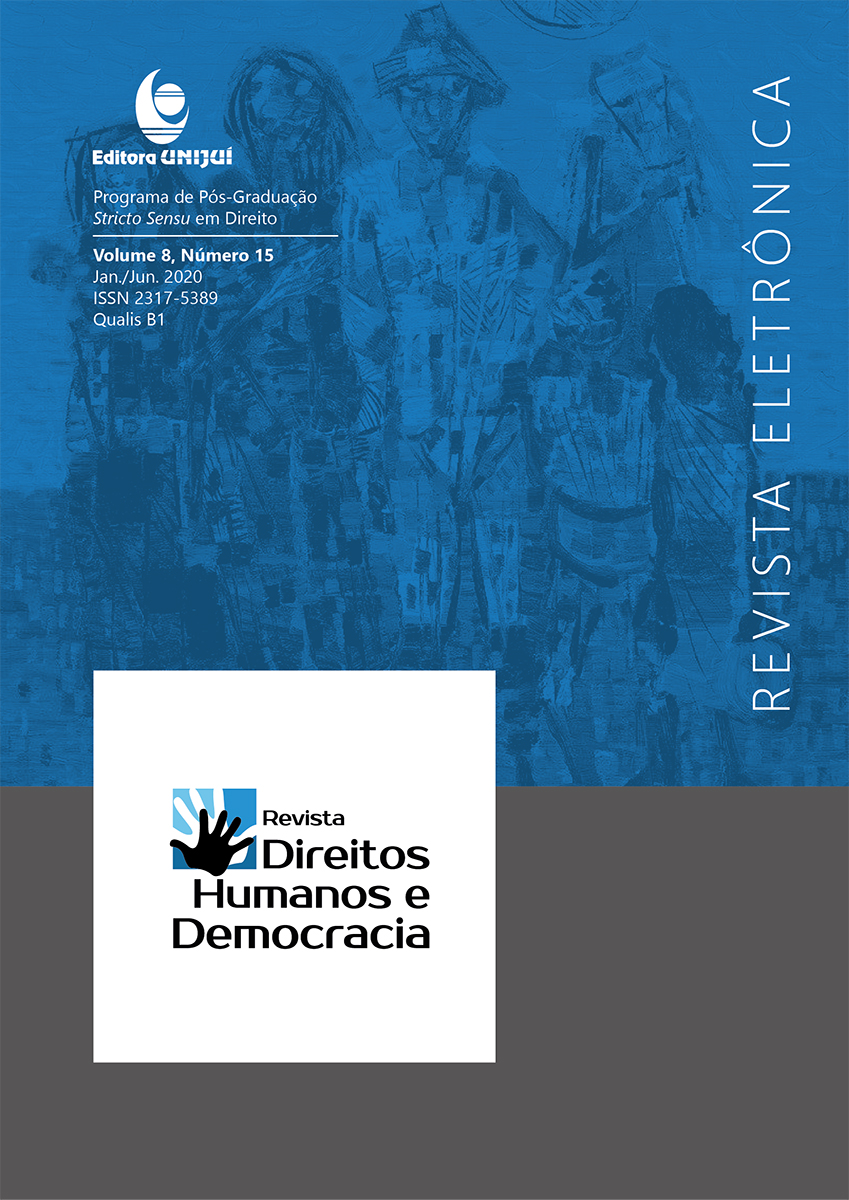AS DECISÕES POLÍTICO-LEGISLATIVAS EM TEMPOS DE CRISE ECONÔMICA E A PROTEÇÃO DOS DIREITOS FUNDAMENTAIS PELO TRIBUNAL CONSTITUCIONAL: UMA ANÁLISE DA JURISPRUDÊNCIA EUROPEIA
DOI:
https://doi.org/10.21527/2317-5389.2020.15.60-77Keywords:
Fundamental Rights, Economic and Financial Crisis, Constitutionality Review, Constitutional CourtAbstract
The economic-financial crisis that broke out in the early 21st century was not affected only to a limited extent - market issues in general. The decrease in economic activity (domestic and international) soon impacted the tax collection, and the sharp shortage of financial resources in the public coffers made it very difficult to comply with legal commitments that the State was bound. Moreover, the crisis have also impacted the law in a moment that was impossible to carry out the constitutional rules related to the social rights, and the analysis of the constitutionality of the austerity measures implemented by the legislator threatened the country's governance. Within this context, the role of the Constitutional Court as the controlling organ of the acts of the other powers gained even more importance, not only for the noble and fundamental task of restoring the supremacy of the Constitution, but especially because in doing so, in some cases, risk to the solvency and credibility of the State, which was rated by experts as a more painful measure to society than the very existence of an unconstitutional law. In this way, the Constitutional Courts in Europe dealt with many legislative acts that went backwards in terms of social rights, either by approving them or declaring them unconstitutional, and the purpose of this paper is to bring to Brazilian doctrine some of the decisions and positions of these courts in times of crisis.
Downloads
Published
How to Cite
Issue
Section
License
By publishing in the Revista Direitos Humanos e Democracia, authors agree to the following terms:
Articles are licensed under the Creative Commons Atribuição 4.0 Internacional (CC BY 4.0), which allows:
Share — copy and redistribute the material in any medium or format;
Adapt — remix, transform, and build upon the material for any purpose, including commercial use.
These permissions are irrevocable, provided the following terms are respected:
Attribution — authors must be properly credited, with a link to the license and indication of any modifications made;
No additional restrictions — no legal or technological measures may be applied that restrict the use permitted by the license.
Notices:
The license does not apply to elements in the public domain or covered by legal exceptions.
The license does not grant all rights required for specific uses (e.g., image rights, privacy, or moral rights).
The journal is not responsible for opinions expressed in the articles, which remain the sole responsibility of the authors. The Editor, with the support of the Editorial Committee, reserves the right to suggest or request modifications when necessary.
Only original scientific articles presenting research results of interest, not previously published or simultaneously submitted to another journal with the same purpose, will be accepted.
References to trademarks or specific products are intended solely for identification purposes and do not imply any promotional endorsement by the authors or the journal.
License Agreement: Authors retain copyright over their articles and grant the Revista Direitos Humanos e Democracia the right of first publication.













